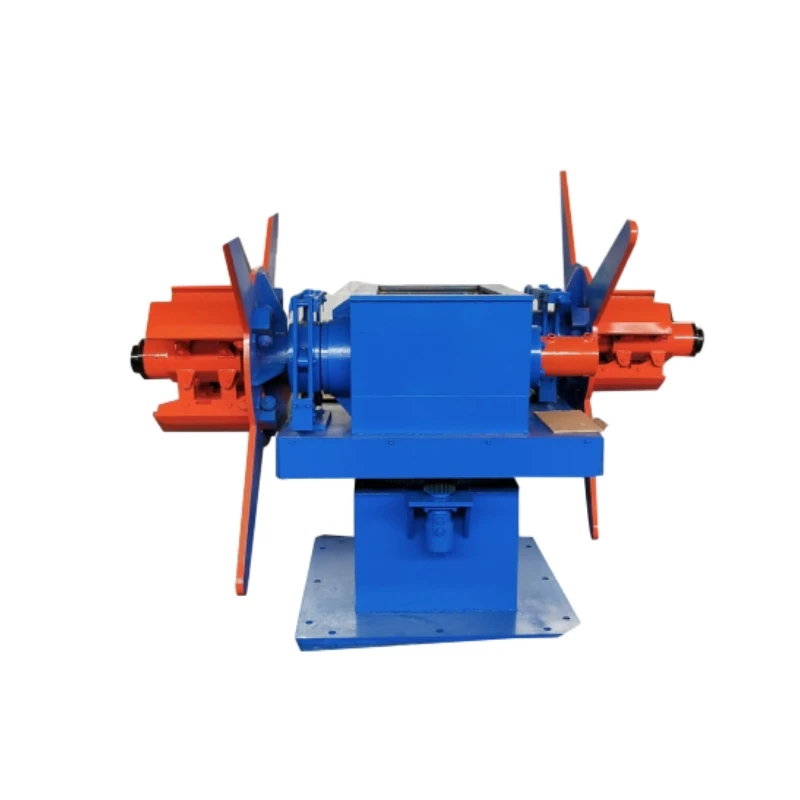panel roll former
Understanding Panel Roll Formers An Essential Tool in Metal Fabrication
In the modern world of metal fabrication, efficiency and precision are paramount. One of the tools that have revolutionized the manufacturing process in this industry is the panel roll former. This innovative machinery is designed specifically for creating various types of panels used in construction, manufacturing, and many other applications. Understanding the mechanics and advantages of panel roll formers provides insights into their significance in contemporary manufacturing processes.
What is a Panel Roll Former?
A panel roll former is a type of machinery that shapes metal sheets into specific profiles continuously as they are fed through a series of rollers. These machines transform flat metal sheets into finished products like roofing panels, wall panels, and other structural components. The roll-forming process is characterized by its efficiency, which allows for the rapid production of standardized shapes with minimal material waste.
The Process of Roll Forming
The roll forming process involves several key stages
1. Material Preparation The process begins with the selection of raw metal sheets, typically made from steel or aluminum. These sheets are cleaned and, if necessary, coated to prevent corrosion.
2. Feeding the Material The metal sheets are fed into the roll former, where they enter a series of rollers. These rollers are arranged in a specific sequence to gradually bend and shape the material into the desired profile.
3. Forming the Profile As the sheets pass through the rollers, they are continuously formed into the chosen shape. This can include complex profiles with ridges or lips that enhance strength and stability.
4. Cutting to Length Once the metal has been successfully formed, it is cut at predetermined lengths to produce finished panels ready for assembly or sale.
panel roll former

5. Finishing Touches Depending on the application, additional processing may include painting, coating, or embossing the panels for aesthetic purposes or added protection.
Advantages of Using Panel Roll Formers
The use of panel roll formers offers numerous benefits that make them an indispensable tool in the manufacturing industry
- High Speed and Efficiency Panel roll forming can produce long runs of products at high speeds, significantly increasing throughput compared to traditional methods. This makes it ideal for high-volume production.
- Material Conservation The continuous nature of roll forming minimizes scrap material, resulting in lower production costs and a more sustainable manufacturing process.
- Precision and Consistency The design of the rollers ensures that each panel produced is uniform, with precise dimensions and profiles. This consistency is critical in construction and manufacturing, where exact specifications must be met.
- Versatility Panel roll formers can accommodate various materials and create an extensive range of profiles, making them adaptable to numerous applications across different industries.
- Durability of End Products The panels produced through roll forming are incredibly strong and durable. Their design inherently allows for better load distribution, making them suitable for structural applications.
Conclusion
Panel roll formers play a crucial role in the metal fabrication industry, offering an efficient, cost-effective, and precise method for producing panels for various applications. From roofing and siding panels to more specialized components, these machines have transformed the way manufacturers approach panel production. With advancements in technology continuing to enhance their capabilities, panel roll formers will remain a key player in the evolution of the manufacturing landscape in the years to come. As industries continue to seek faster and more efficient production methods, the importance of tools like the panel roll former cannot be understated.
-
High Frequency Straight Seam Welded Pipe Production Line-BzZhou Xinghua Machinery Equipment Manufacturing Co., LTD.|Precision Welding, High EfficiencyNewsJul.30,2025
-
High Frequency Straight Seam Welded Pipe Production Line|BzZhou Xinghua|Precision Welding&EfficiencyNewsJul.30,2025
-
High Frequency Straight Seam Welded Pipe Production Line - BzZhou Xinghua|Precision Engineering&EfficiencyNewsJul.30,2025
-
High-Frequency Straight Seam Welded Pipe Production Line-BzZhou Xinghua Machinery Equipment Manufacturing Co., LTD.NewsJul.30,2025
-
High-Frequency Straight Seam Welded Pipe Production Line-BzZhou Xinghua Machinery Equipment Manufacturing Co., LTD.|Precision Manufacturing, High EfficiencyNewsJul.30,2025
-
High Frequency Straight Seam Welded Pipe Production Line-BzZhou Xinghua Machinery Equipment Manufacturing Co., LTD.|Precision Steel Pipe Manufacturing&Industrial EfficiencyNewsJul.29,2025


